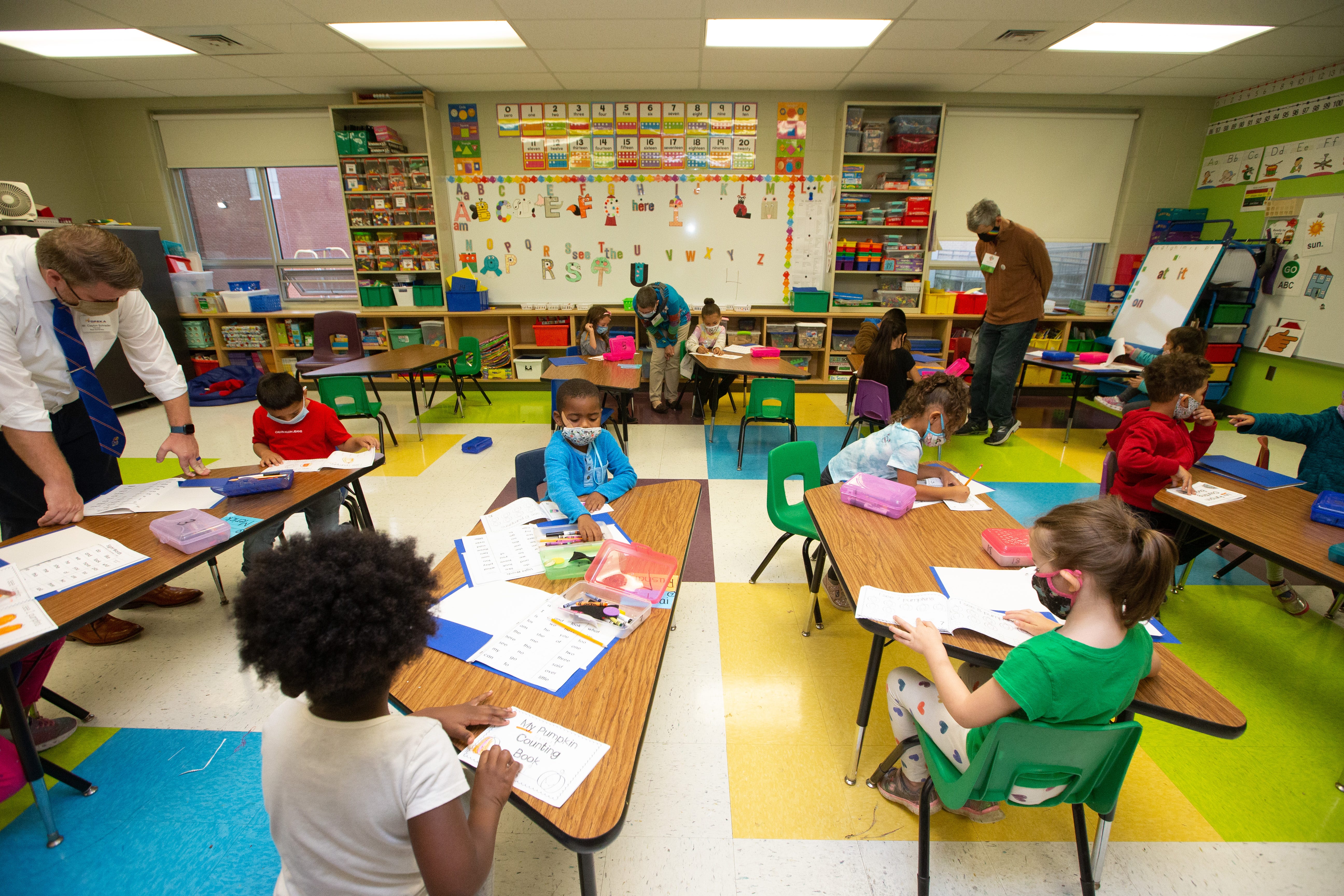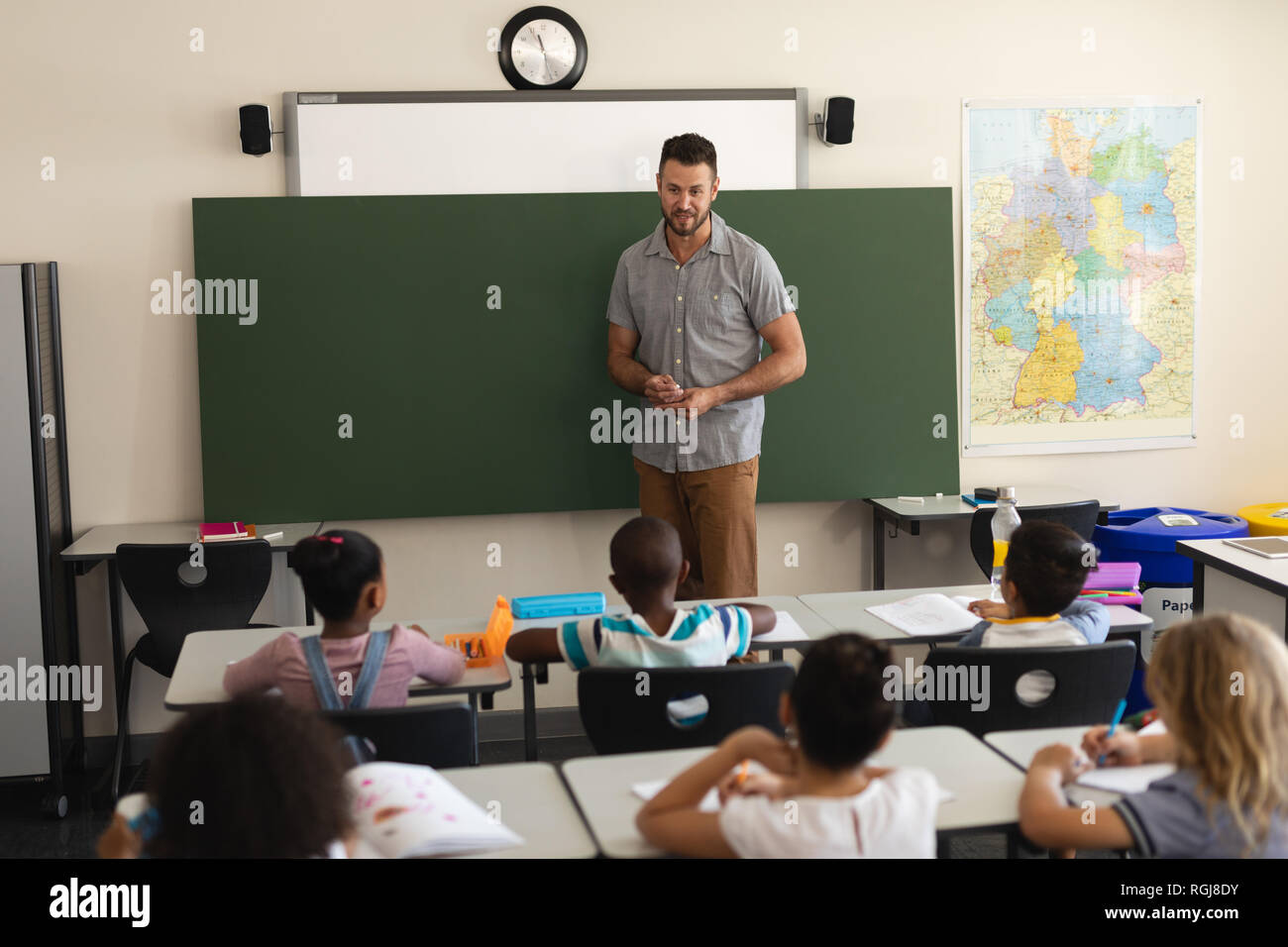Discover the Important Benefits of Recognizing Key Scientific Research for Young Learners
The relevance of main scientific research education and learning for young students extends much past mere expertise purchase; it works as a basic pillar in developing necessary abilities such as important thinking, analytical, and imagination. Involving with scientific principles through interactive and inquiry-based tasks not just cultivates curiosity but also lays the groundwork for resilient, certain students. As we discover these advantages even more, it becomes clear that the implications for future scholastic and individual growth are extensive. Nonetheless, what details methods can teachers use to optimize these advantages?
Enhancing Vital Thinking Skills
Promoting vital thinking skills in young students is vital for their cognitive growth and future academic success. Critical thinking allows kids to assess details, evaluate evidence, and make informed decisions, which are essential abilities in today's information-rich culture. By participating in scientific questions, young learners can boost these skills as they discover concepts via testing, monitoring, and reasoning.
In key science education, instructors can promote vital thinking by urging pupils to ask questions, create theories, and carry out experiments. This hands-on strategy permits youngsters to exercise analytical and develop rational thinking skills. When students explore the properties of materials or the principles of motion, they discover to evaluate their searchings for seriously and draw final thoughts based on evidence.
Additionally, discussions and joint projects can promote critical thinking by supplying opportunities for learners to articulate their ideas, difficulty assumptions, and think about diverse point of views. By producing a helpful environment that values query and representation, teachers can nurture vital thinking skills that encourage young students to come to be long-lasting learners and independent thinkers. Eventually, boosting these abilities lays a durable foundation for their future scholastic endeavors and individual development.
Promoting Interest and Exploration

Key scientific research education gives an organized setting where young students can discover various sensations through hands-on experiments and observations. By permitting them to engage with materials and participate in inquiry-based knowing, instructors produce chances for youngsters to create theories, examine their ideas, and reason. Such experiences support a feeling of wonder and excitement concerning scientific research.

Building Confidence in Trouble Solving
Building confidence in analytic is an important part of key science education that equips young students to approach difficulties with resilience and creative thinking - primary science tuition Singapore. When youngsters are encouraged to engage with scientific principles through hands-on activities and inquiry-based discovering, they develop essential abilities in important reasoning and evaluation. This process not just enhances their understanding of scientific concepts however likewise cultivates a sense of ownership over their understanding
To develop self-confidence, teachers ought to develop an encouraging atmosphere where blunders are considered as chances for development as opposed to failures. This motivates students to take threats and check out different options to problems. By offering scaffolding and support, instructors can assist pupils navigate complex jobs, gradually boosting their freedom in analytic situations.
In addition, collective knowing experiences, such as group jobs or experiments, can even more boost students' self-confidence as they discover to verbalize their ideas Extra resources and pay attention to others' point of views. These communications nurture social abilities and enhance the idea that analytical is often a cumulative venture. Inevitably, cultivating confidence in problem-solving prepares young students for future academic obstacles and furnishes them with the tools necessary for long-lasting understanding.
Motivating Creative Thinking and Technology
In the world of main scientific research education and learning, motivating creativity and technology is crucial for growing a dynamic understanding atmosphere. By fostering a society where young learners can discover concepts and experiment freely, instructors assist students establish vital thinking abilities and an enthusiasm for exploration. Imagination in science urges kids to ask inquiries, create hypotheses, and participate in hands-on activities that boost their imagination.
Incorporating open-ended jobs and inquiry-based learning into the educational program allows pupils to reveal their one-of-a-kind point of views and remedies. For example, when entrusted with resolving a trouble pertaining to their environment, students can conceptualize read this post here multiple techniques, leading to innovative end results that showcase their creativity. This not only grows their understanding of clinical concepts however additionally infuses a sense of ownership over their understanding process.
Moreover, imaginative science education and learning nurtures partnership amongst peers, as pupils frequently share concepts and improve each other's understandings - primary science tuition Singapore. This collective spirit advertises not just advancement yet additionally essential social skills. Thus, by prioritizing creativity and development in primary science education, we encourage young students to assume critically, embrace difficulties, and visualize opportunities, laying a strong structure for lifelong learning and exploration
Planning For Future Understanding Obstacles
Young students' ability to navigate future understanding obstacles rests on a solid structure in main science education and learning. This fundamental understanding gears up students with essential believing skills and an organized technique to analytical, important for taking on complicated issues in an ever-evolving globe. Primary scientific research promotes inquiry-based learning, urging students to ask inquiries, check out theories, and take part in hands-on experiments.
As they create these skills, students end up being adept at assessing data, recognizing patterns, and drawing educated final thoughts. Such expertises are important not just in scientific areas however additionally in math, technology, and design (STEM), where interdisciplinary expertise is increasingly vital.
Moreover, main scientific research education cultivates a sense of interest and strength in young students, allowing them to view difficulties as chances for development. As they run into and conquer challenges in their scientific expeditions, they construct self-confidence in their capacity to innovate and adapt.
Eventually, a strong foundation in main scientific research not just prepares young learners for scholastic pursuits however likewise furnishes them with the tools needed for long-lasting understanding and adaptability in a quickly altering worldwide landscape. By purchasing primary science education, we are investing in the future capacity of our learners.
Conclusion
Comprehending primary science is essential for young learners, as it cultivates essential reasoning, interest, and imagination. Engaging with scientific principles via hands-on experiments improves problem-solving abilities and constructs strength. This foundational knowledge not just furnishes trainees to evaluate read here data and identify patterns however also supports an inquiry-based way of thinking. Eventually, the benefits of key scientific research education prepare children for future scholastic pursuits and infuse long-lasting learning behaviors necessary for flourishing in an ever-evolving globe.
The significance of key scientific research education for young students expands far past plain knowledge procurement; it offers as a fundamental column in creating essential abilities such as critical thinking, analytical, and creative thinking. By creating a helpful atmosphere that values questions and reflection, educators can nurture important assuming skills that empower young learners to end up being independent thinkers and long-lasting learners. Therefore, by focusing on creativity and advancement in key scientific research education and learning, we empower young learners to think critically, accept challenges, and envision possibilities, laying a strong structure for long-lasting knowing and expedition.
Young students' capacity to browse future understanding obstacles pivots on a strong structure in main scientific research education and learning.Comprehending primary scientific research is important for young students, as it promotes essential thinking, inquisitiveness, and creativity.